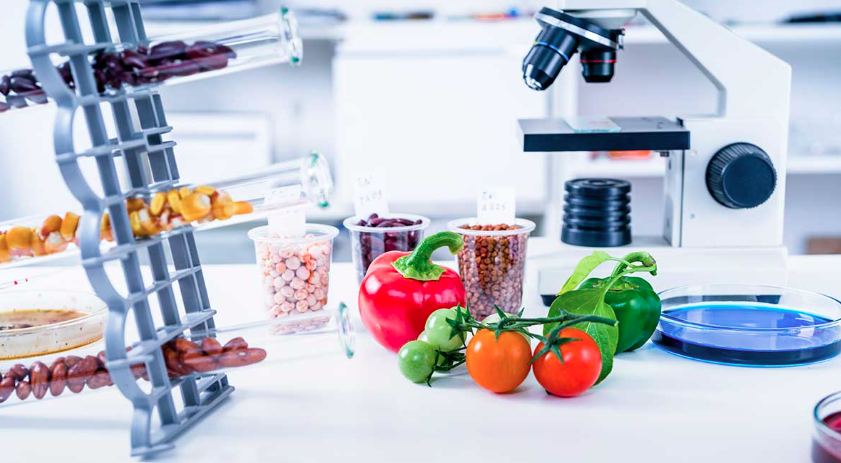The Coming together of Biotech and Food Tech: Bridging Industries and the Growing Demand for Skilled Professionals
The boundaries between biotechnology and food technology are shrinking faster than your favourite snack during a late-night Netflix binge. At Nexa, we have seen a surge in this space, with an increasing demand for talent capable of merging and bridging the gap between these two industries.
As these fields become more intertwined, we are eager to explore how we can better support companies in attracting and building the right teams to lead this innovation. Whether it’s sourcing molecular biologists who can help create the next plant-based breakthrough or finding food tech experts with a biotech edge, we are here to drive the future of food innovation.
With the rise of food enzymes, alternative proteins, fermentation technologies, and bioengineered solutions for sustainable food production, the need for skilled professionals capable of navigating the crossroads of these two industries has never been greater.
A New Era for Food Technology?
Food tech has officially gone from niche to mainstream, kind of like how avocados became the must have breakfast item. This shift is being driven by consumer demand for healthier, sustainable, and ethically produced food, as well as the need for more efficient and eco-friendly food production methods. Behind the scenes? Biotech is working its magic fuelling innovations.
- Food Enzymes and Microbial Fermentation: These aren’t just fancy terms for lab experiments. Enzymes and fermentation, once the heroes of the biotech world, are now transforming plant-based proteins, perfecting the taste of alternative meats, and even boosting nutritional value. That veggie burger you love (I am not quite there yet), but it’s had a little help from biotech methods to taste as the real thing.
- Genetic Engineering for Crop Optimisation: Remember the days when plants were just… plants? Well, those days are over. Thanks to CRISPR technology and genomic research, crops are getting superpowers. Long utilised in biotech, these methods are being applied to create drought resistant crops, reduce food waste, and enhance food security by improving yields without the need for additional resources. It’s like turning a carrot into a superhero, minus the cape 😉
- Cellular Agriculture: Biotech is central to developments in lab-grown meat, where cells are cultured to produce animal protein without the environmental footprint of traditional farming. The processes require highly specialised knowledge in tissue engineering, molecular biology, and cell culture skills that have traditionally been confined to the biotech sector and well…lab-grown meat is no longer a thing of sci-fi.
Skills Demand
As biotech and food tech become increasingly intertwined, companies need professionals who can speak both “biology” and “delicious.” The challenge? The demand for skilled professionals who understand both the technical aspects of biotechnology and the practical applications of food production is tough. Companies in the food industry are increasingly looking to biotech professionals to help them implement cutting-edge technologies and bring innovative products to market.
The skills set we are seeing at Nexa most in demand:
- Molecular Biology and Genomics: Whether it’s tweaking plant DNA or figuring out how to make algae taste like chicken (because why not?), professionals who can handle gene editing are the true chefs of the biotech world. As genetic modification becomes more common in food tech, professionals with expertise in DNA sequencing, molecular diagnostics, and gene editing are vital to designing next-gen food products.
- Bioprocessing and Fermentation Expertise: The ability to scale microbial fermentation processes, manage bioreactors, and apply enzyme technology is crucial for developing food alternatives and improving food quality.
- Regulatory Knowledge: Understanding the red tape of genetically modified organisms (GMOs) and cell-based meat? Navigating the regulatory frameworks for biotech-based food products, including approvals for GMOs and cell-based meats, requires specialised knowledge of both biotech and food safety regulations.
- Cross-Disciplinary Collaboration: If you can talk CRISPR with the scientists while explaining “taste” to the chefs then congratulation you have found your niche! The ability to work in cross disciplinary teams that include scientists, engineers, food technologists, and business leaders is essential to successfully bridge the gap between biotech innovations and practical food production solutions.
The Growing Talent Gap
Here’s the problem: while biotech professionals have the science down, not all of them know their way around a kitchen (and let’s be honest, lab-grown meat still needs to taste good). Despite the increasing collaboration between biotech and food tech, there remains a talent gap. Many professionals in biotech have limited exposure to the unique challenges of the food industry, while food tech specialists may not have the in-depth biotech knowledge required to work with complex enzymes, genetics, or cellular processes. Bridging this gap will require more focused training programs, partnerships between academic bodies and industry, and the creation of career pathways that bring talent from both sides into the mix (ing bowl – couldn’t resist).
Educational programs are beginning to evolve to meet this need, with new degrees and certifications that focus on bioengineering for food applications. In parallel, companies are offering more professional development opportunities to reskill and upskill workers to meet the demands of this converging industry.
Driving Innovation Together
The food tech revolution won’t be televised…well, maybe it will, considering how many food shows are out there, but the point is, biotech and food tech are driving innovation faster than we can say “sustainability.” Professionals who understand how to leverage biotechnology’s tools to create scalable, sustainable food solutions are crucial for addressing pressing global challenges such as population growth, climate change, and resource depletion. For companies that aim to stay at the forefront of this rapidly evolving industry, building a workforce equipped with these hybrid skills will be key to driving innovation and growth.
Conclusion
As the lines between biotech and food tech blur, the need for skilled professionals who can navigate both industries are becoming more critical. Whether it’s crafting the next plant-based protein or figuring out how to scale cellular agriculture, these industries need people who can do it all. If you’ve got the skills, you’ll be at the forefront of a ‘tasty’, sustainable revolution.
In the end, those who can blend the best of biotech with the wonders of food will be the ones shaping the future of what’s on our plate…and let’s face it, I am sure we are all excited about what’s coming next (especially if it involves more pudding).
Kirsty Calow




